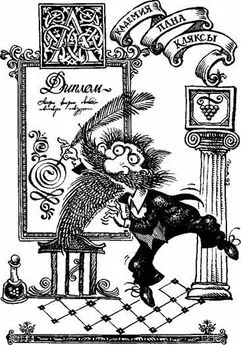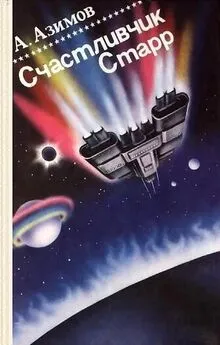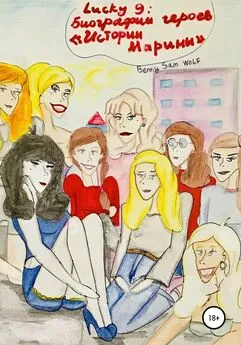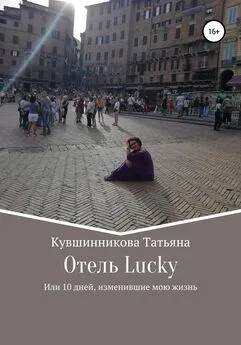Kingsley Amis - Lucky Jim
- Название:Lucky Jim
- Автор:
- Жанр:
- Издательство:неизвестно
- Год:неизвестен
- ISBN:нет данных
- Рейтинг:
- Избранное:Добавить в избранное
-
Отзывы:
-
Ваша оценка:
Kingsley Amis - Lucky Jim краткое содержание
Lucky Jim - читать онлайн бесплатно полную версию (весь текст целиком)
Интервал:
Закладка:
Dixon dropped the papers between the pages of Barclay's book and turned away, only to start violently and look back as a loud thundering noise broke out behind him. Welch, his hair flapping, was straining like a packed-down rugby forward to push the revolving door in the wrong direction. Dixon stood and watched, allowing his mandrill face full play. After a time Welch, somehow divining his error, began pulling instead at the now-jammed door, changing his semblance to that of anchor in a losing tug-o'-war team. With a sudden bursting click the door yielded and Welch overbalanced backwards, hitting his head on the panel behind him. Dixon went away, beginning to whistle his Welch tune in a solemn, almost liturgical tempo. He felt that it was things like this that kept him going.
XVIII
'WELL, that's really splendid, Dixon,' Welch said seven hours later. 'You've filled in all the gaps in a most… a most… Really quite admirable.' He gloated over his notes for a moment, then suddenly added: 'What are you doing now?' with an effect of suspicion.
In point of fact, Dixon had got his hands behind his back now and was gesturing with them. 'I was just…' he stammered.
'I was wondering if you were doing anything this evening. I thought you might like to come over and have a meal with us.'
After a day of doing Welch's work, there was plenty for Dixon to do that evening in connexion with his lecture, but it was obvious that he couldn't afford to turn down this offer, so he said unhesitatingly: 'Well, thank you very much, Professor. That's very kind of you.'
Welch nodded as if pleased, and gathered up the papers to put them into his 'bag'. 'I think this ought to go down very well tomorrow night,' he said, turning on Dixon his sexual maniac's smile.
'I'm sure it will. Who's the talk being delivered to?'
'The Antiquarian and Historical Society. I'm surprised you haven't seen the posters.' He picked up his 'bag' and put his fawn fishing-hat on his head. 'Come along, then. We'll go down in my car.'
'That'll be nice.'
'I must say they're a marvellously keen lot,' Welch said passionately as they went downstairs. 'A very good audience to talk to. Attentive and… keen, and plenty of questions to fire at you afterwards. Of course, you get mainly town people there, but we always get some of the better students along. Young Michie, for instance. A good lad, that. Have you managed to get him interested in your special subject at all?'
Reflecting that Michie was lying ominously low these days, Dixon said: 'Yes, he seems quite set on it,' and hoped that Welch would take due heed of this testimony to his power to 'interest' such a good lad.
Welch went on as before: 'A very good lad, he is. Very keen. Always turns up to the Antiquarians. I've had one or two chats with him, as a matter of fact. I think we've really got quite a lot in common.'
Dixon doubted whether Welch and Michie had much in common beyond a similar view of his own capacities, but, judging that Welch's professional ethics would prevent him from instancing that, asked with a show of curiosity: 'In what way?'
'Well, we both have this interest in the English tradition, as you might call it. His is more philosophical, I suppose, and mine more what you could sum up as cultural, but we've got quite a lot in common. I was thinking the other day, by the way, that it's remarkable how my own interests have turned more and more towards this English tradition in the last few years. Whereas my wife's are… I always sum her up as a Western European first and an Englishwoman second. With her, you see, with her sort of Continental way of looking at things, almost Gallic you might say she is in some things, well, the things that are so important to me, the English social and cultural scene, with a kind of backward-looking bias in a sense, popular crafts and so on, traditional pastimes and that, well, to her that's an aspect in a way, you see, just an aspect - a very interesting aspect, of course, but no more than an aspect,' and here he hesitated as if choosing the accurate term, 'a sort of aspect of the development of Western European culture, you might say. You can see it most clearly, really, in her attitude towards the Welfare State, and it's a great advantage to be able to view that problem in what you might describe as a wider perspective. She argues, you see, that if people have everything done for them…'
Dixon, having long ago summed up Mrs Welch on his own account, allowed Welch to go on about her political views, her attitude towards 'so-called freedom in education', her advocacy of retributive punishment, her fondness for reading what Englishwomen wrote about how Parisians thought and felt. His own thoughts and feelings, all the time they were getting into the car and driving off, were busy on the subject of Margaret. He didn't know how he was to face meeting her; this reflection, which had been occupying him for most of the day at the Public Library, had become much more urgent now that he'd have to face meeting her very shortly. He'd also presumably have to face meeting Bertrand and Mrs Welch, but these encounters must in comparison be much less appalling. There'd be Christine as well; he didn't really want to see her either, not because of anything to do with her personally, but because she formed a portion of his worry about Margaret. He'd have to do something to show Margaret she wasn't entirely alone; he wouldn't, he mustn't let himself, get back on the old footing with her, but he must somehow reassure her of his continued support. How was he going to do that?
In search of some distraction, he looked out of the window at his left just as Welch slowed to a walking pace at a road junction. Standing on the pavement was a big fat man whom Dixon recognized as his barber. Dixon felt a deep respect for this man because of his impressive exterior, his rumbling bass voice, and his unsurpassable stock of information about the Royal Family. At that moment two rather pretty girls stopped at a pillar-box a few yards away. The barber, his hands clasped behind his back, turned and stared at them. An unmistakable look of furtive lust came over his face; then, like a courtly shopwalker, he moved slowly towards the two girls. Welch now accelerated again and Dixon, a good deal shaken, hurriedly switched his attention to the other side of the road, where a cricket match was being played and the bowler was just running up to bowl. The batsman, another big fat man, swiped at the ball, missed it, and was violently hit by it in the stomach. Dixon had time to see him double up and the wicket-keeper begin to run forward before a tall hedge hid the scene.
Uncertain whether this pair of vignettes was designed to illustrate the swiftness of divine retribution or its tendency to mistake its target, Dixon was quite sure that he felt in some way overwhelmed, so much so that he listened to what Welch was saying. He was saying 'Most impressive', and for a second Dixon felt like picking up the spanner he could see in the dashboard pocket and hitting him on the back of the neck with it. He knew the sort of thing Welch found impressive.
The rest of the journey passed uneventfully. Welch's driving seemed to have improved slightly; at any rate, the only death Dixon felt himself threatened by was death from exposure to boredom. Even this danger receded for a couple of minutes while Welch disclosed a few facts about the recent history of the effeminate writing Michel, a character always waiting in the wings of Dixon's life but apparently destined never to enter its stage. This Michel, as indefatigably Gallic as his mother, had been cooking for himself in his small London flat, and had in the last few days made himself ill by stuffing himself with filthy foreign food of his own preparation, in particular, Dixon gathered, spaghetti and dishes cooked in olive oil. This seemed fit punishment for one so devoted to coagulated flour-and-water and peasants' butter-substitute, washed down, no doubt, by 'real' black coffee of high viscosity. Anyway, Michel was evidently coming down in a day or two to recuperate on his parents' English fare. Dixon turned his head to laugh out of the window at this last stroke. This time he experienced nothing worse than a small rage at the thought of a little louse like that having a flat in London. Why hadn't he himself had parents whose money so far exceeded their sense as to install their son in London? The very thought of it was a torment. If he'd had that chance, things would be very different for him now. For a moment he thought he couldn't think what things; then he found he could conceive the things exactly, and exactly how they'd differ from the things he'd got, too.
Welch went on talking, his own face the perfect audience for his talk, laughing at its jokes, reflecting its puzzlement or earnestness, responding with tightened lips and narrowed eyes to its more important points. He went on talking even while he drove up the sandy path into the yard next to his house, grazed the shattered water-tap, nosed into the garage entrance, and, with a single frightful bound, brought the car to rest within a couple of inches of the inner wall. Then he got out.
Casting about for means to leave the car, Dixon rejected the six-inch corridor left to him between the door and the side-wall nearest him, and, after some bad-tempered leg-play with the gear- and brake-levers, slid across the front seat to the other door. As he did this, something seemed to pluck at the seat of his trousers. When he'd emerged into the giddy heat of the garage, he felt behind him and found he could comfortably insert his first two fingers into a rent in the material. A glance at the driver's seat showed the tip of what must have been a broken spring just emerging from the upholstery. He began slowly to follow Welch, his heart starting to pound and mist breaking out on his spectacles. He allowed a terrible grimace to dawn on his features, forcing his chin down as far as possible and trying to bring his nose up between his eyes. When this was nearing completion, he took off his glasses to rub them clear. His sight was good enough without their aid for him to observe that four witnesses of his actions were posted at the long window some yards away; they were (left to right) Christine, Bertrand, Mrs Welch, and Margaret. He quickly restored his nose to its normal position and began pensively fondling his dropped chin, in the hope of seeming assailed by imbecilic doubt; then, unable to think up any gesture or expression of greeting comprehensive enough to include all the members of such a quartet, pursued Welch's retreating figure round the corner of the house.
What was he going to do about his trousers? Which would be worst: mending them himself, which would involve finding, or more likely re-buying, the required materials, having them repaired at a shop, which meant remembering to ask someone where such a shop could be found, remembering to take the trousers to it and remembering to fetch and pay for them, or asking Miss Cutler to do them? Would the last be quickest? Yes; but it might carry with it the penalty of watching the operation and being talked to by Miss Cutler during it and for an incalculable time after it. Apart from a pair belonging to a suit much too dark for anything but interviews and funerals, his only other trousers were so stained with food and beer that they would, if worn on the stage to indicate squalor and penury, be considered ridiculously overdone. Welch should do the repairs. It was his horrible car, wasn't it? Why hadn't he torn his own vile trousers on the barbed seat? Perhaps he would soon. Or perhaps he had already without noticing.
Passing under the thatched barbette over the front door, Dixon averted his eyes from a picture Welch had recently bought and talked about and which now hung in the hall. The work of some kindergarten oaf, it recalled in its technique the sort of drawing found in male lavatories, though its subject, an assortment of barrel-bodied animals debouching from the Ark, was of narrower appeal. On the other side was a high shelf with an array of copper and china utensils on it. Among them was Dixon's special Toby jug, and, sneering, he now fixed this with his eye. He hated that Toby jug, with its open black hat, its blurred, startled face, its spindle-limbs coalesced with its torso, more strenuously than any other inanimate occupant of this house, not excepting Welch's recorder. Its expression proved that it knew what he thought of it, and it could tell nobody. He put a thumb on each of his temples, waggled his hands at it, rolled his eyes, mouthed jeers and imprecations. A third Welch property now manifested itself, a young ginger cat called Id. It was the only survivor of a litter of three; the other two Mrs Welch had christened Ego and Super-Ego. Trying his best not to think of this, Dixon bent and tickled Id under the ear. He admired it for never allowing either of the senior Welches to pick it up. 'Scratch 'em,' he whispered to it; 'pee on the carpets.' It began to purr loudly.
Читать дальшеИнтервал:
Закладка:







